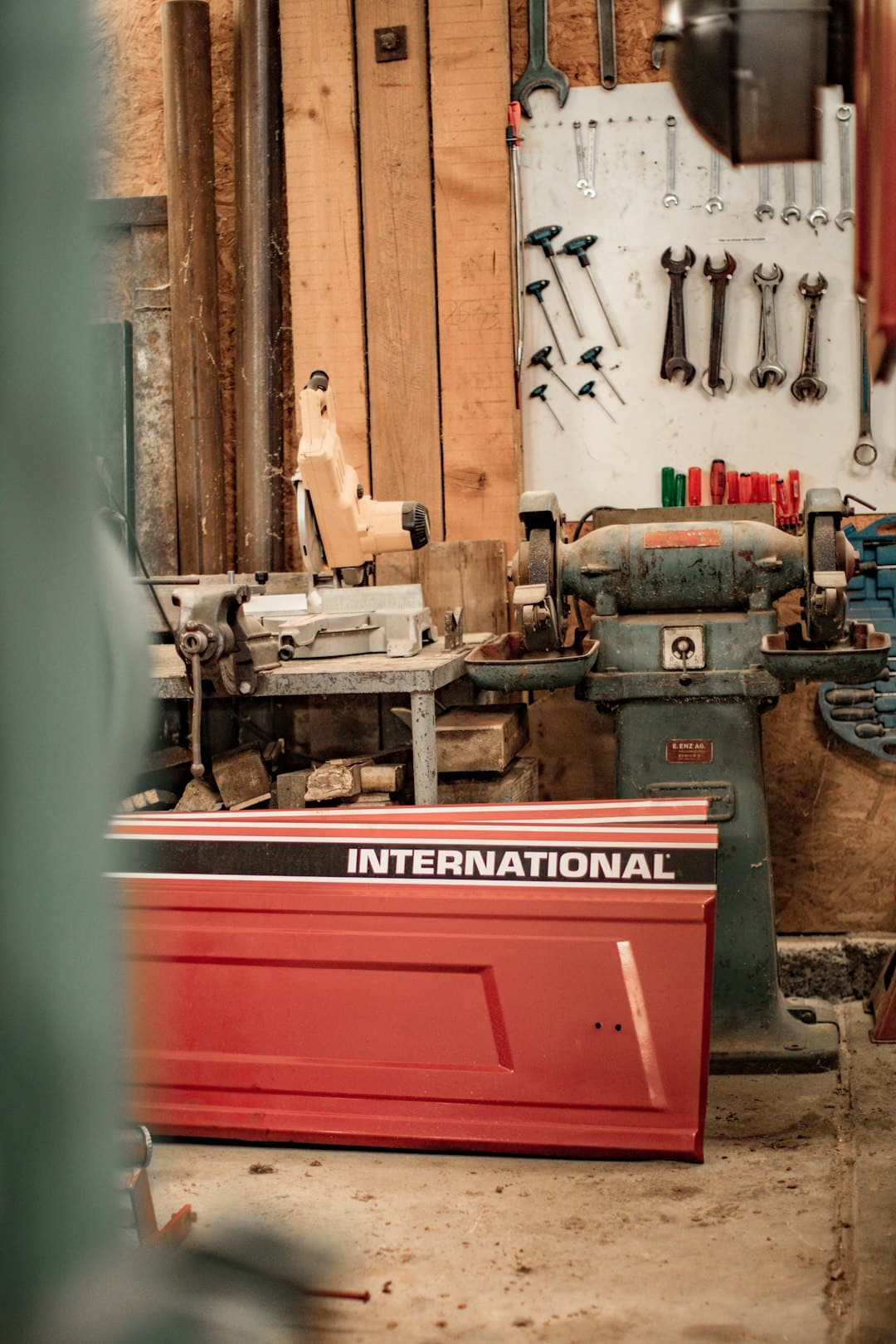Let me paint you a picture that’s probably sitting in your garage right now.
There’s a pegboard with tools hanging in perfect symmetry—each wrench in its designated spot, each screwdriver lined up like tiny soldiers. There’s probably a coffee can full of screws and washers that he swore he’d need “someday.” Maybe there’s a workbench covered in sawdust that smells like Saturday mornings and unfinished projects.
And there’s you, standing in the doorway like you’re about to enter a crime scene, wondering what the heck you’re supposed to do with two dozen different sized wrenches when you can barely manage to change a lightbulb without a YouTube tutorial.
His tools. His tools.
Not just any tools—the ones that knew the calluses on his hands. The ones that helped him build that deck you’re still eating dinner on. The hammer that hung the pictures currently watching you have this breakdown. The level that somehow made everything in your house straight except your life.
And now they’re just… sitting there. Waiting. Like loyal dogs who don’t understand why their person isn’t coming home.
Here’s what nobody tells you about widowhood: it’s not just losing a person. It’s inheriting an entire museum of masculinity that you never signed up to curate.
The internet is full of helpful articles about “dealing with your late husband’s belongings,” but they all sound like they were written by people who think grief can be organized into neat little piles labeled “keep,” “donate,” and “trash.”
As if it’s that simple.
As if you can just Marie Kondo your way through a lifetime of “Does this spark joy?” when everything sparks something—just not joy.
So let me give you permission to do something radical: ignore every piece of advice you’ve gotten about this so far.
Because here’s what I’ve learned from walking this path myself and sitting with hundreds of women who’ve stood exactly where you’re standing: this isn’t really about the tools at all.
This is about control. This is about identity. This is about the terrifying reality that you’re now the sole decision-maker in a life you used to share.
Those tools represent every “I’ll handle it” and “Don’t worry about it” and “I’ve got this” that you’ll never hear again. They’re proof of competence you’re not sure you possess. They’re evidence of a partnership that used to mean you never had to learn how to use them.
And now? Now you’re supposed to figure out their fate like some kind of garage-based Supreme Court justice.
And that’s where God’s quiet truth slides in — not with judgment, but with permission:
“There is a time to keep and a time to throw away.” – Ecclesiastes 3:6
Not because your love expired. But because your life is still unfolding. And you, my friend, get to decide what belongs in it.
But here’s the thing about tools—and this might be the most important thing anyone ever tells you about this whole mess—they’re not sacred relics. They’re not shrines. They’re not tests of your devotion or proof of your love.
They’re just tools.
I know that sounds cold. Maybe even heartless. But follow me here.
Your husband didn’t fall in love with you because of your ability to organize his socket set. He didn’t choose to build a life with you based on your capacity to maintain his drill bits in alphabetical order.
He loved you for you. Not for your ability to be the keeper of his stuff.
So when you’re standing in that garage, paralyzed by the weight of all those decisions, remember this: there is no right answer. There’s only your answer.
Maybe your answer is keeping everything exactly as it is for now because you’re not ready. That’s valid.
Maybe your answer is gifting his favorite hammer to your son-in-law and selling the rest because you need the space more than the memories. That’s valid too.
Maybe your answer is learning to use some of them yourself—not because you have to, but because you want to. Because there’s something powerful about holding a tool that once held him.
Or maybe your answer is donating them all to Habitat for Humanity because you love the idea of his tools building homes for families who need them. Because that sounds like something he would’ve wanted.
All of these answers are right. None of them make you a good widow or a bad widow. They just make you a woman making the best decisions she can with the information she has right now.
And here’s what I wish someone had told me when I was drowning in decisions about drill bits and socket wrenches: you don’t have to decide everything today.
You don’t have to have a master plan for the garage any more than you have to have a master plan for the rest of your life.
You can take one tool at a time. One decision at a time. One breath at a time.
You can keep what serves you and release what doesn’t—not because you love him any less, but because you’re learning to love yourself enough to make choices that support the life you’re building now.
The life that’s yours to build. With or without power tools.
So go ahead—open that garage door. Pick up one thing. Hold it. Feel what it brings up. Then decide what serves you today, in this moment, with the woman you’re becoming.
The tools will wait. They’re good at that.
But your life? Your beautiful, messy, under-construction life? That’s happening right now.
And Earthling, you don’t need his permission—or his tools—to build it.
Tired of making these decisions alone? Ready to build a life that fits the woman you’re becoming instead of the one you used to be? I’ve got tools for that—and they don’t require a trip to Home Depot.
